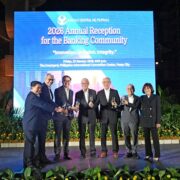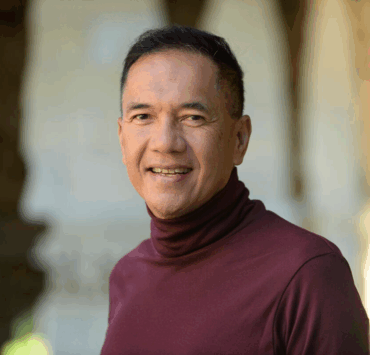5 Filipino innovators to watch
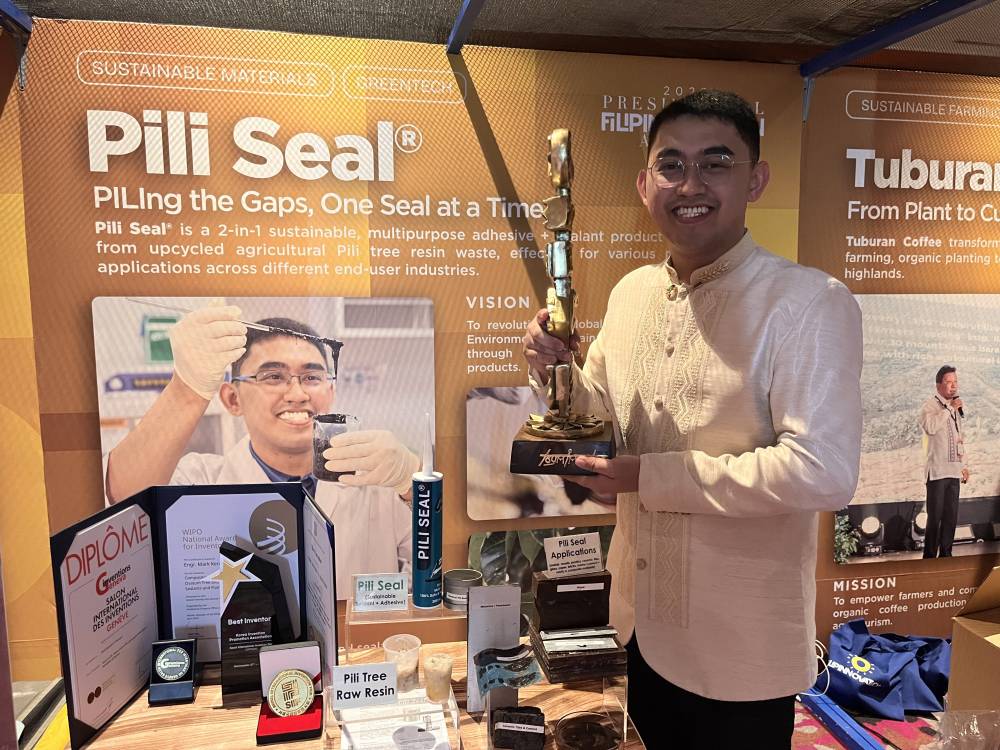
From innovative palay seeders in farm fields to smart recycling systems, Filipino ingenuity is rewriting what “made in the Philippines” means.
On Nov. 6, five Filipino innovators received the inaugural Presidential Filipinnovation Awards from the National Innovation Council and the Department of Economy, Planning and Development (DepDev).
“This initiative underscores our dedication to supporting Filipino innovators who are developing impactful solutions to the country’s most pressing challenges,” DepDev Secretary Arsenio Balisacan says.
“It is one of the government’s flagship programs for building a dynamic innovation ecosystem that fosters collaboration, creativity and the growth of homegrown technologies,” he adds.
Each awardee took home P3.5 million worth of prizes, including P2.5 million in cash, a presidential medallion, a plaque, a trophy and a postcompetition support package.
Here are the five winners.
Pili Seal
Mark Bantugan, a 26-year-old engineer, remembers how, during every typhoon, his parents made him and his siblings chew bubble gum to stick onto their leaky roof.
The memory stuck, quite literally, and sparked his idea to create a sustainable, two-in-one adhesive and sealant using the sticky resin of pili trees.
“We champion circular economy and environmental sustainability by transforming this agricultural pili waste resin into a high-value product,” Bantugan says.
Pili Seal is pitched as an adhesive and sealant for metal surfaces, wood materials, paper-based components, various plastics, ceramic surfaces, tiles, glass, brickwork and composite materials.
Once its life cycle has ended, the residual material can be converted into a fertilizer.
Bantugan hopes Pili Seal’s win could allow them to launch the product into the business-to-consumer market, as they only have business-to-business operations currently.
“We try to cater to different sectors. For example, we have an ongoing project collaboration with the Department of National Defense for bullet adhesive, and then we have aviation, construction,” he says.
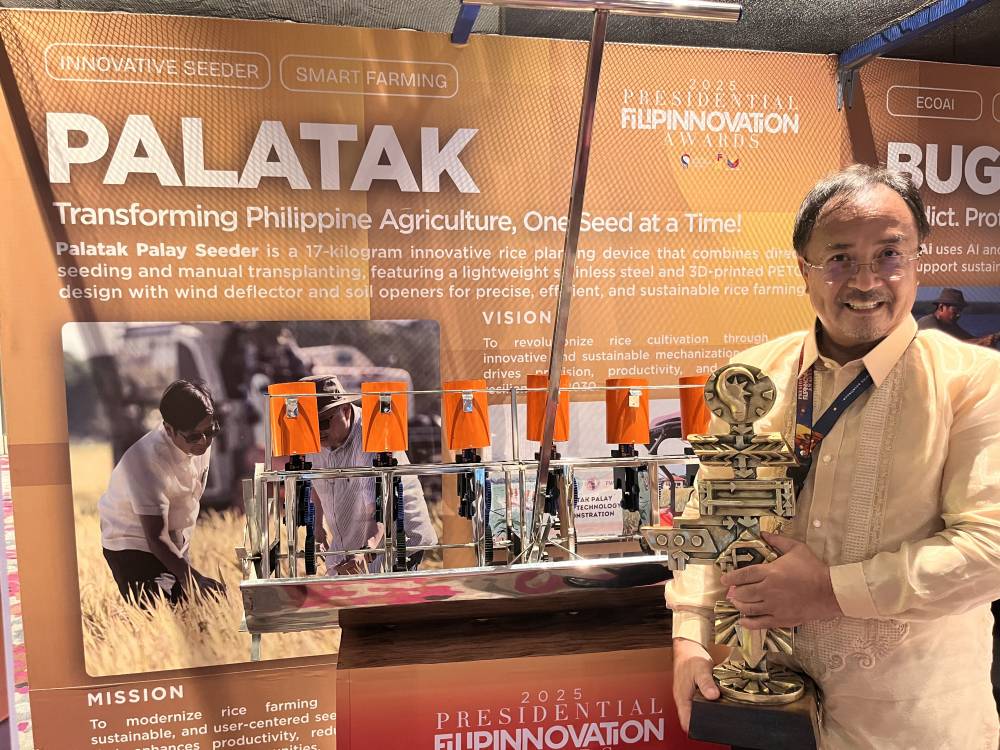
Palatak Palay Seeder
Inspired by his mother’s years of farming by hand, Delfin Cuevas Jr., an engineer from Oriental Mindoro and former overseas worker in Canada, aims to modernize rice farming by combining direct seeding with manual transplanting. This can offer local farmers a practical alternative to labor-intensive methods.
The 17-kilogram planting device transfers the seed directly into the soil. Compared to bulky, mechanized seeders that require trained operators, the Palatak is lightweight, easy to use and designed for everyday farmers—shortening the rice growth cycle from around 112 days to just 100.
The device also features a built-in soil opener and closer that ensures the seeds are immediately buried, making them more resilient to weather changes and threats from birds and rats.
According to Cuevas, local farmers can also save up to P10,000 per hectare with the device, as it requires only around P1,000 for transplanting, compared with the usual P10,000 to P12,000.
Since its launch in October 2024, it has sold nearly 700 units across 69 provinces nationwide. The unit is priced at P55,000 each.
“It (award) is a big help for us because it’s a big help for Filipinos,” he says. He is hoping that more local government units (LGUs) can procure the device for small farmers.
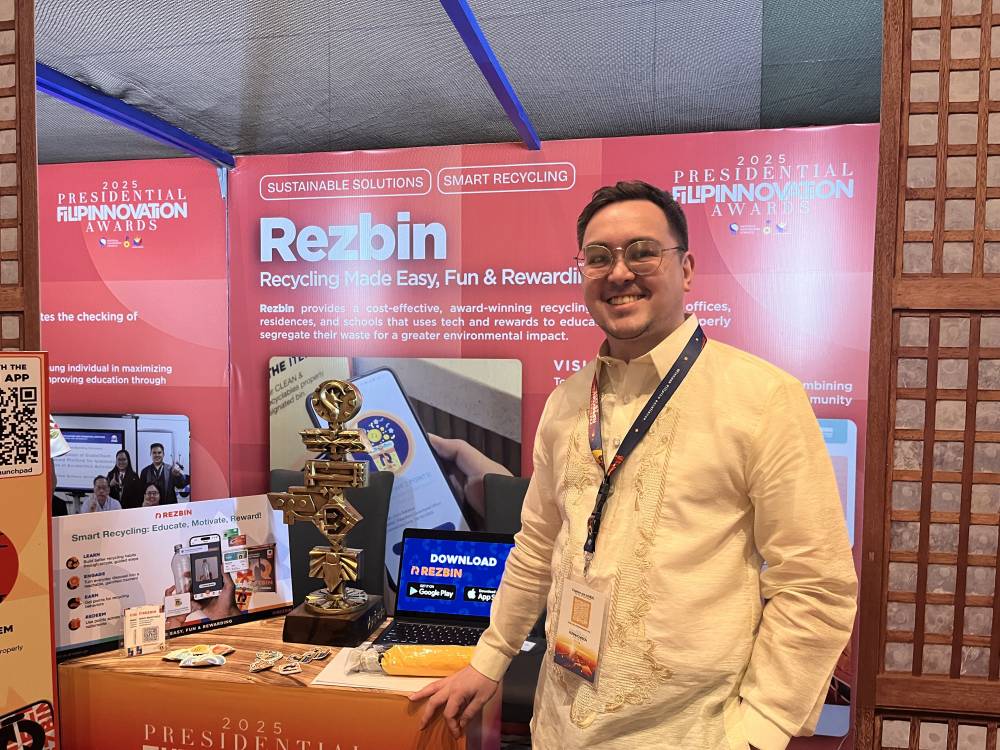
RezBin
In a bid to encourage more people to segregate their waste, Mari Martirez is using artificial intelligence (AI) gamification to power a smart bin with a reward system.
RezBin is an online platform that evaluates recyclables through AI-based assessment and rewards users with points to encourage participation.
“What our system does is we transform any ordinary recycling bin into a tech-powered smart bin from the comfort of your own office, school, or residential area. It’s basically a reward system for recyclables,” Martinez says.
Through the RezBin app, users simply scan the QR code on a partner recycling bin, snap a photo of their recyclables, and earn points they can exchange for more than 250 rewards and raffle prizes.
Launched in November 2024, Martinez hopes to partner with local government units (LGUs) to expand the reach of their app.
“One of the main things we’re going to work on is focusing on the community side. So we build micro-communities of recycling communities inside our platform, and we will be expanding to other cities,” he says.
Martinez adds that this can aid LGUs in tracking if their constituents comply with the Solid Waste Management Law.
From Iloilo, RezBin has so far expanded to Makati, Bonifacio Global City, Quezon City and San Juan.
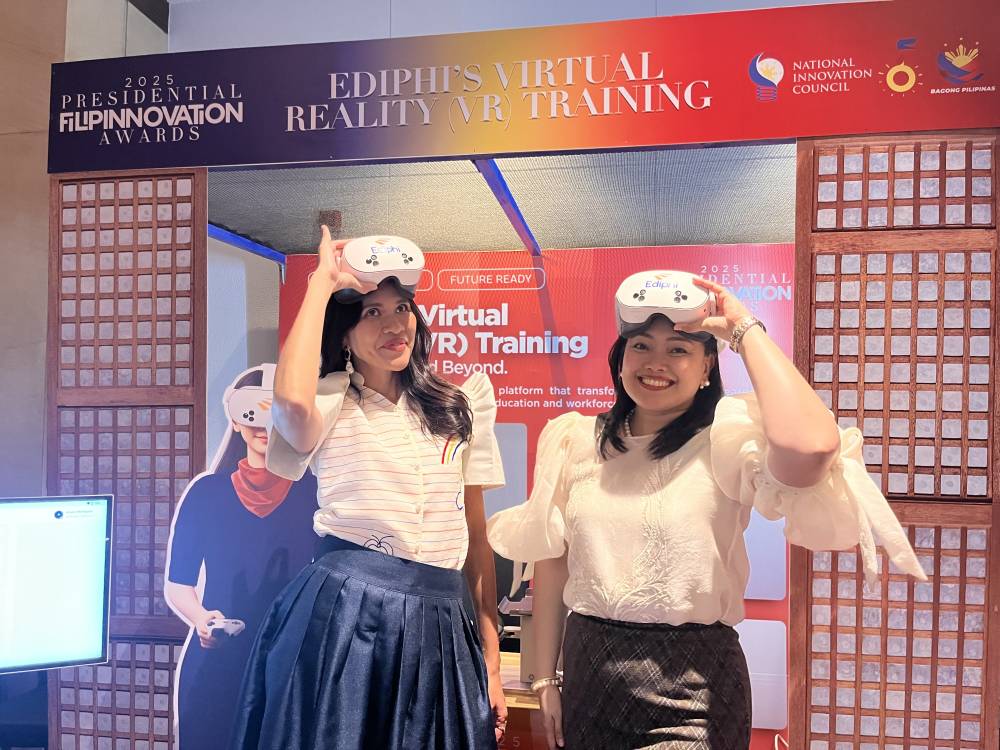
Ediphi
Among the five winners, the lone women founders stood out with Ediphi, a virtual reality training platform that helps students in the hospitality and service sectors develop real-world skills.
“We have always believed in helping people find the best way to use their skills that they need to get the careers that they’re dreaming of,” say founders Cristina Carl and Vanessa Jopillo.
“We found that this is a really great way because you can get world-class training at the level of any other international training company. Filipinos can compete,” they add.
Ediphi’s AI-powered virtual trainer, “Yumi,” serves as the personal guide by offering real-time feedback, tailored learning paths and actionable insights. It allows learners to immerse themselves in hands-on training experiences.
The idea for the virtual reality training platform was born during the pandemic, at the height of the academic freeze and shift to online learning.
According to Carl and Jopillo, their win paves the way for pilot runs in two public schools, bringing Ediphi to students in Nueva Ecija and Bukidnon. The pilot also aligns with Ediphi’s goal to reach out to underserved communities across the country and help them navigate the workforce.
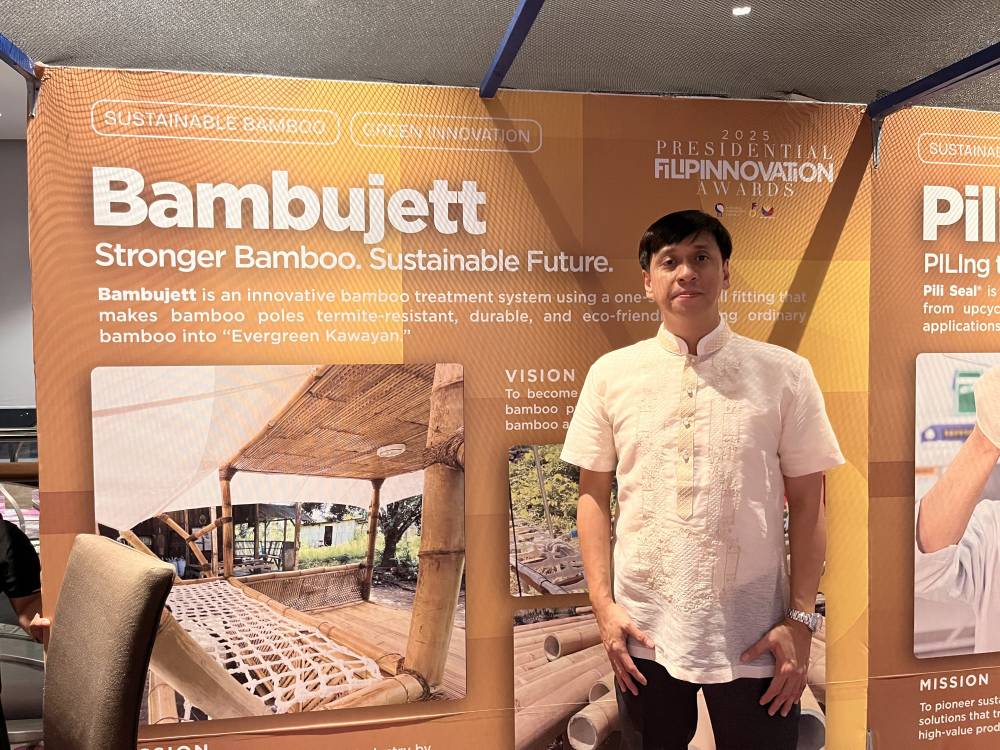
Bambujett
After two decades of working in agriculture, Reginald Magnaye is out to prove that bamboo can be far more durable than most people think.
With Bambujett, Magnaye created the first commercial bamboo treatment system in the country using a one-size-fits-all rubber fitting.
“Right now, the market is still not very open to using bamboo because of the cultural perception that bamboo is a cheap and non-durable material,” Magnaye says. “We need to keep on creating proof to show people that bamboo is a natural, elegant and long-lasting material.”
According to Magnaye, starch inside bamboo reduces its durability, leaving it prone to termites and fungal growth.
His Bambujett system solves this by applying pressure through a rubber fitting to remove the starch and inject treatment solutions, resulting in termite-resistant poles called “Evergreen Kawayan.”
Traditional bamboo treatment takes about two weeks of soaking, while the modified method shortens the process to eight to nine hours by heating the solution beforehand. But Magnaye says Bambujett cuts that lead time to just one hour.
With the win, Magnaye hopes they can build three more facilities in Davao to further develop the market and partner with farmers.
“There are still many aspects of improvement. In terms of our innovation, we are still improving it. The real challenge will be creating the market,” he says.













